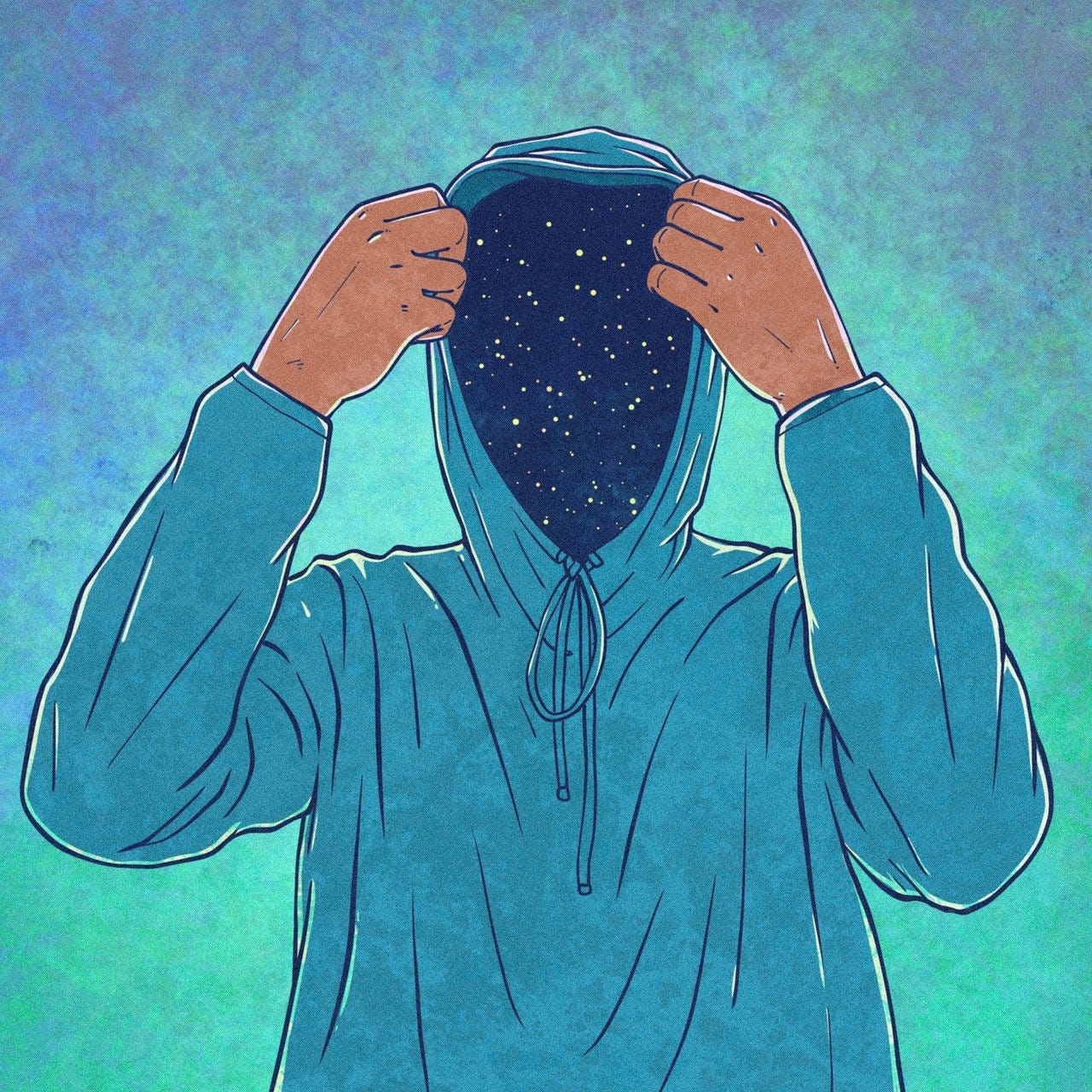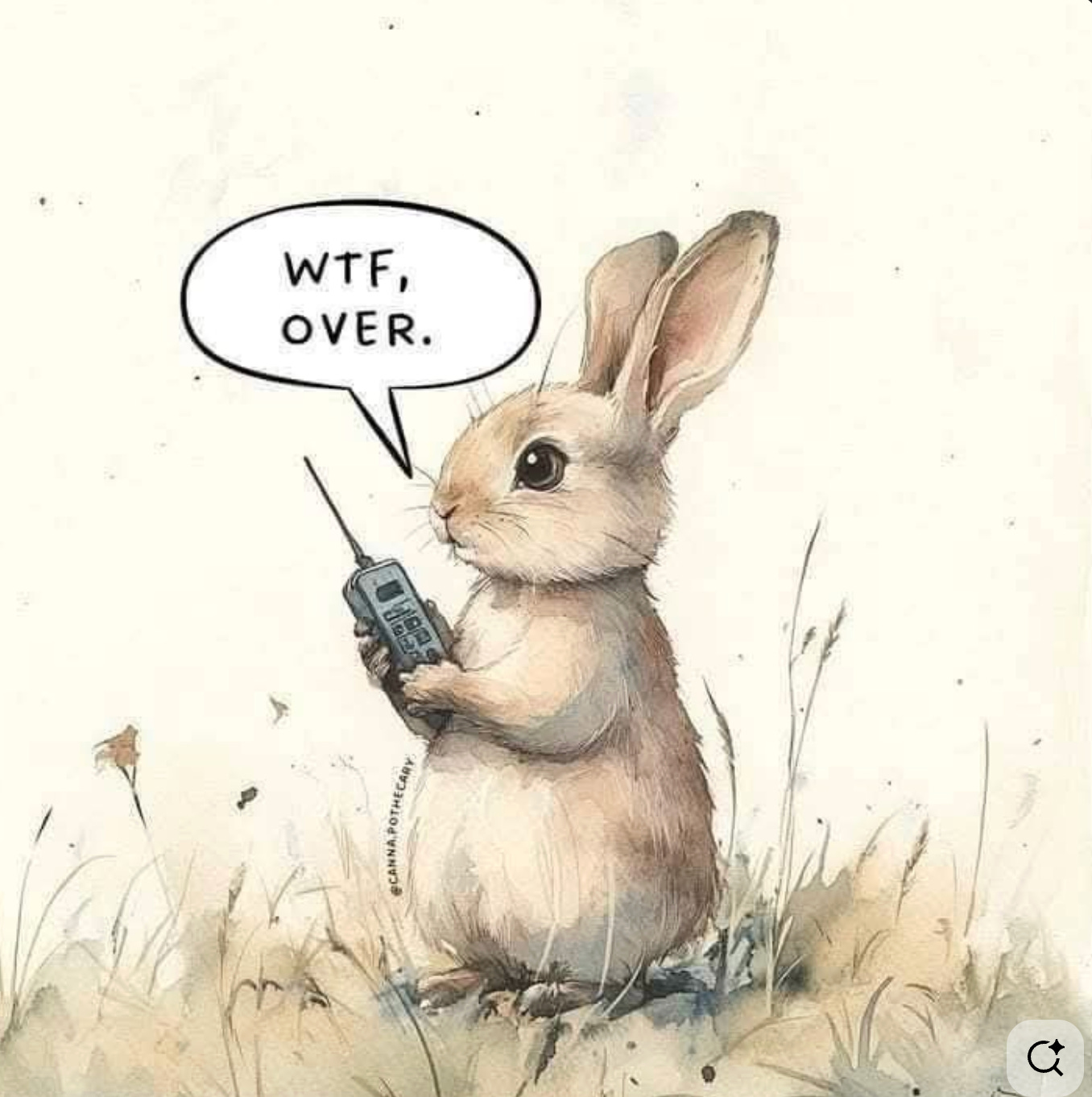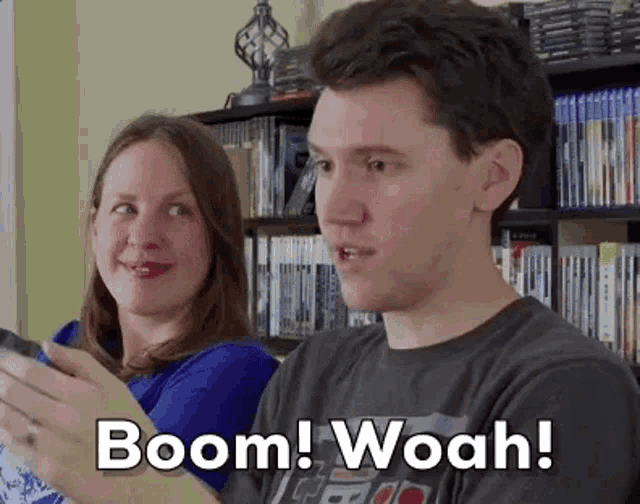In a State of Despair? Let's Get Through it Together
I found a book on the streets of Brooklyn. Here's how it helped me through mine.

If I could be exceptionally good at one thing. I would hope it would be nothing at all.
—a wise friend
Wandering the streets of Brooklyn last month on a visit back home, despair gripping me tight, I found Rollo May’s, The Courage to Create, resting in front of someone’s brownstone there for the grab. I snagged it fast, being a book I wanted to read, unaware it would help contain the darkness that had been consuming me for weeks.
Despair has many facets
There’s existential despair:
It begins as an identity crisis—a deep questioning of “Who am I?” The persona we’ve built for ourselves around career, relationships, ideology, etc. no longer feel aligned. As our identity unravels, feelings of emptiness and disorientation emerge. We’ve failed to find purpose. Then comes despair. Life feels pointless. We may withdraw from it and things that once gave us meaning.
Sound like depression? It could be if it sticks around. Live long enough engaged in a relationship or work that doesn’t feel authentic, depression will be your body’s way of speaking that truth.
Sometimes despair pops in for a few hours, though. I find it grips me when stuck in my head analyzing the hell out of something. Or expecting too much of myself and overworked. When the weight of my family, what feels like an unbudging maze of suffering, presses with yet another jarring misadventure to digest.
But then something happens, the only compelling antidote to despair (and depression)—connection. With another human, nature, or God; with my feelings or an idea, even a simple change in scenery, that wipes it away in a flash. Sometimes it’s putting my bare feet in the grass, feeling the warm sun on my face that sets me free.
The mid-life crisis. The dark night of the soul
Despair has creeped in big time as I navigate mid-life—my changing body, the feeling of time running out. A bit different than existential despair where one’s identity is the main focus, the mid-life flavor is confronting the bigger realities, that aging is real and so is death. You notice the sagging. Your parents are wearing their age. You hear of people dying more often than you’d like.
There’s also the realization, there’s something more to life than the achievement paradigm that infuses our adolescence, young adulthood, and hyper-capitalistic Western world. The awful emptiness of living in service of the ego, who seeks only outcomes and recognition, can no longer be ignored.
We’ve succeeded but it’s just not enough.
The crisis is learning to slide our ego into the passenger seat, to move into something more transformative and sustainably joyful, like living for the present, embracing the process, and oh you know, being ordinary; and the fact that it can be quite challenging to do all that.
Because who am I when I’m not a visionary writer, a caring friend, a good lover, an inspiring person, a helpful daughter?
(In this sense, identity issues do come to the fore.)
What I’ve been experiencing in midlife often feels more akin to what some spiritual philosophers call the Dark Night of the Soul. Eckhart Tolle describes it:
your perceived sense of meaning in life collapses. There’s no purpose to anything and nothing makes sense anymore. But really what has collapsed is the whole conceptual framework for your life, the meaning your mind had given it.
In my case, it’s realizing being successful (even at something I love) or chasing lofty visions of myself, no longer brings me that youthful glory. Still like a kid in a candy shop, my ego grasps and though I have a new framework (Hail, Presence!, Hail, Relaxation!), it’s in an early stage of construction. I can’t always get behind it.
Nearly forty-seven years old, I feel the limits of time and wonder, will I ever feel happy as I am? Will I ever stop caring about the opinions of others? Eckhart goes on to say:
This dissonance results in a dark place that feels like depression. But it’s precisely from here, we transform our consciousness. Life takes on meaning again, but no longer a conceptual one you can necessarily explain. You awaken into something deeper. You find a sense of purpose or connectedness not dependent on explanations or concepts in your mind. The dark night of the soul is a re-birth, a death you die. What dies is the egoic sense of self.
Despair is not just mid-life, it’s all-life. We can’t go through this messy existence (though I’m sure some do and sometimes I’m jealous) without touching the absolute ridiculousness of it. The boredom, the separation, the terror, the pain, the entropy of everything. The genocides, wars, abuse, and disease. All daunting realities we have to sit with. The human condition, by its nature, can be deeply despairing.
What’s it all for?, I’ve asked myself a billion times.
Rollo May, now he talks about yet another shade of despair
One that arises as a companion to our creativity. The essence of creativity, he says, is being called to do something new, to be in a no man’s land where there are no well-worn paths.
There, we’re bound to meet chaos — that raw, unshaped force we must mold into form, all the while grappling with self-doubt and the possibility of failure.
Creating takes courage
As for courage:
Kierkegaard and Nietzsche and Camus and Sartre have proclaimed that courage is not the absence of despair; it’s rather the capacity to move ahead in spite of it.
This piece has caused me plenty of that.
Wading through its layers, weaving together parts unsure of how they’ll fit. Lost in ideas I trust will take shape, yet still doubting. It grips hardest right before I start. I dread that formless, unnameable beginning.
And then, is it any good? Am I any good? We’re back in ego. As if being lost isn’t disturbing enough, let’s judge and make it a gazillion times worse.
The anxiety of nothingness
May links his “no man’s land” to what existentialists call the anxiety of nothingness. Nothingness being the empty space that precedes a new creation, where old meanings and structures collapse and new ones haven’t yet emerged (like that dark night).
Anthropologists call it the liminal space: the ambiguous period when we leave an old identity behind but haven’t stepped into a new one. Our brains evolutionary wired to keep us safe, send out the red flags. Chaos is experienced as threat rather than new beginning.
Order is wanted but not needed.
Call it no-man’s land, nothingness or even the great abyss, creativity becomes:
not a mere aesthetic gesture but an existential act that affirms being in the face of nonbeing. The artist converts the void into new patterns of meaning, symbols and forms.
When I put pen to paper, I know an unknown part of me wants to emerge, in fact, demands I help it exist. I write to figure things out, to embody the unknown. Like labor, it doesn’t come without pain and anxiety.
But no worries, the existentialists say. Embracing all that is the pathway to freedom and a deeply meaningful existence. Not simply an artistic act, we meet that dreadful nothingness on the precipice of change or as a wake up call to it.
Anxiety, therefore, isn’t pathological. It’s the existential tension of living authentically.
Is that freedom? Run for your life!!!
“He whose eye happens to look down into the yawning abyss becomes dizzy…anxiety is the dizziness of freedom.” -Søren Kierkegaard
In Eric Fromm’s, Escape From Freedom, he argues, despite the desire for freedom, many people experience deep insecurity and isolation as they near it. As our anxiety picks up, we yearn for a sense of belonging and security. Soon we’re dizzy and disorganized. Intolerable to bear?
EXIT ABYSS.
Enter mind-numbing jobs, toxic relationships, religious cults, group think, nationalism, political extremism, self-betrayal and yadayadayada . Better to have someone else tell us what to do.
(Though sometimes that would be nice.)
But, not so fast!, these wise guys further advise. Embracing the dizzying responsibility of creating our own meaning is the most important task we can undertake in our life!
It’s how, one teacher once told me, you find your key note, that unique way of expressing yourself in the world; the route to your aliveness.
If that’s on your agenda, you must be willing to continually confront uncertainty, take leaps of faith into realms beyond reason and ordinary experience (a.k.a. do something you’re scared of, and let curiosity, rather than anxiety, be your guide.
Then.
A spiritual experience, a new relationship, an artwork or something simple, like inner peace could be on the other side. Like Eckhart said, “you awaken into something deeper, a sense of purpose not dependent on explanations”.
Like I said, I’d just been lost in a sea of my own despair. I was processing the recent ending of an important relationship while also (when not roaming the streets of Brooklyn), spending a lot of time in my childhood home in New Jersey.
Triggered by the same old dysfunctional family dynamics, I wondered what was making me feel worse: The loss of my boyfriend or the fact that my family keeps running like hell from the abyss. Would they ever choose happiness? And to be fair, would I ever give up taking on their feelings and trying to fix their problems? Would I ever just accept the chosen path of another?
All these questions were moving through me, while wading through my mid-life angst and freaking out about the creative apathy descending upon me amidst all this. For the first time since my twenties, I was waking up feeling depressed.
Rollo and Co.’s words thus helped soothe me.
I now had the most important task of my life before me: to embrace my despair, existential, creative or otherwise rather than deem it a nuisance.
Oh, did I mention?
I’m making a big move this January.
I’ll be leaving Berlin after eight years of calling it home, heading to Mexico with no job or apartment set, trusting the certainty of an intuition moving me towards something new I’m sure will reveal itself through the doing.
I’ve done this before. I left New York City eight years ago and it turned out well.
But still, that dread. The empty space before me to make what I want.
The twenty-first century and the anxiety of everythingness
Each time we take the risk of going somewhere we’ve never been, we confront the flip side of the anxiety of nothingness: the anxiety everythingness.
While just another way of conceptualizing the anxiety of radical freedom and dizziness of choice in the face of competing possibilities and prospect of failure, it strikes me that today we have challenges these old philosophers might have never dreamed.
For better or worse, we’re swimming, often trying to stay afloat, in a twenty-first century ocean where information travels at the speed of light, everything is accessible, everything seems possible, and what we want we can often have on demand; while being given the message that failure, shouldn’t be an option because now, more than ever, we can have everything and be anything.
What would Fromm or Kierkegaard or Sartre say if alive?

Thing is, even if we have the belief we can accomplish anything we want, we cannot have everything we want.
That would also be boring—a life without choice, contrast, tension, or process. Life would, in fact, cease to become creative and lose all meaning.
The Brooklyn twilight
One morning while taking in the epic city skyline through the window of my friend’s Brooklyn apartment where I was staying solo, I became painfully aware that the year before I was in this same apartment, in the middle of a renewed love affair with a city I had spent fifteen years of my life. My boyfriend there with me, making it even more magical, as we adventured through a city that had taken on a new flavor.
I’d been waiting months to escape the cold, Berlin summer to be in that warm NewYawk newness. Forgetting that, even though it was my choice to end the relationship seven months earlier, breaking up is still hard to do.
Instead of hope, I saw through that Brooklyn window a twilight zone of loss, family suffering, midlife angst, creative apathy, a new life ahead of me (yay! fuck!) that I tried my hardest not to fix.
This time New York is going to be bleak, I told myself, hearing Rollo and the gang in the background.
Meet this darkness—yours and no one else’s, I heard even more clearly.
As someone who spent much of her life being the guiding light for others through family dysfunction, addiction, and near‑death experiences, I have the tendency to take on too much responsibility. I become caretaker when I shouldn’t be one.
I feel the pain of others, empathy becomes enmeshment, sometimes distortion. A trustworthy guide, people feel safe and inspired in my presence, an identity I love and hate. I’m a highly sensitive being who is strong AF — the result of being a parentified child. As adult, since I’m a social animal who wants to belong and feel loved, I continued to take on the problems of others.
But taking on the probs of others is also what you do to avoid your own uncomfortable feelings.
I had done a lot of the heavy lifting with that one. Still, judging by the exhaustion permeating my body every time I went home, I knew there was more work to be done.
Freedom
“You will never prioritize your own happiness until you let others be happy”, I hear Mel Robbin’s loud, semi-obnoxious voice shout out of my computer screen as I lay in my Berlin bed.
The depression that had been greeting me each morning disappeared once I returned to Berlin. My creative impulses were starting to re-emerge. Along with a fierce determination. Call it a change of scenery.
Or
Something shifted in those final days in Brooklyn. As I gazed out the window into my abyss, I began to sense the faint contours of a light appearing—a distant glimmer in the vast darkness. It had no shape or story, but stirred within me a quiet intuition that once I emerged from this spell of despair, the light awaiting me would be unlike any I had ever known.
It gave me courage.
I didn’t exit.
The despair of self-abandonment
Not sure how philosophers would classify this one, that I’ll leave to the psychologists. Donald Winnicott, a famous psychoanalyst and most poetic of scholarly writers wrote—
“It’s a joy to be hidden and a disaster not to be found.”
Watching the people you love most suffer is excruciating. But you know what’s just as heartbreaking?
Keeping yourself isolated with your own pain. (Or even joy).
Not asking for help when you need it. Not having witnesses. Telling the tiniest of lies so others don’t feel uncomfortable. Not permitting mistakes or imperfection.
I’ve been through a few disasters. I know the sublime joy of being alone. But I didn’t have to despair unnecessarily over others any longer while sacrificing bits of myself.
I could prioritize my own happiness and let others be unhappy.
I could let others just be, to find space to be found.
It dawned on me that abandoning myself feels akin to the existentialist’s anxiety of nothingness, that in truth, abandoning myself has always been the most existentially despairing thing of all.
Courage is not the absence of fear, but rather the assessment that something else is more important than fear.
-Franklin D. Roosevelt





